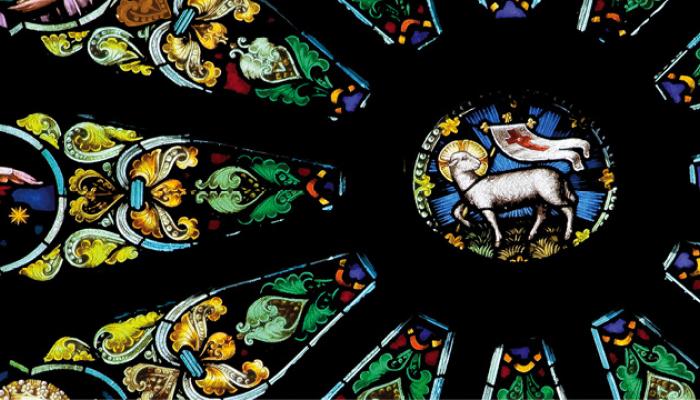
1.28 Perché era necessario che Gesù patisse una morte così orribile?
Gesù morì di una morte orribile, dolorosa e disumana sulla croce. Da una parte egli è il Figlio di Dio; dall’altra, ha sofferto come un essere umano e ha esperimentato dolore e paura. Attraverso la sua sofferenza e morte, Gesù ci ha riscattato dalla morte e ottenuto il perdono per tutti i peccati.
Con la sua orribile morte, Gesù dimostrò che parlava veramente in nome di Dio il Padre, e Dio confermò ciò con la resurrezione di Gesù. Con la sua vita, Gesù ci ha mostrato che egli ama gli uomini. Ha dimostrato questo amore per noi soprattutto sulla croce, dove ha preso su di sé tutti i nostri peccati (Eb 9, 28)Eb 9, 28: Cristo, dopo essersi offerto una sola volta per togliere il peccato di molti, apparirà una seconda volta, senza alcuna relazione con il peccato, a coloro che l'aspettano per la loro salvezza..
What are the results of the sacrifice of Christ on the cross?
Jesus freely offered his life as an expiatory sacrifice, that is, he made reparation for our sins with the full obedience of his love unto death. This love “to the end” (John 13:1) of the Son of God reconciled all of humanity with the Father. The paschal sacrifice of Christ, therefore, redeems humanity in a way that is unique, perfect, and definitive; and it opens up for them communion with God. [CCCC 122]
Why did Jesus have to redeem us on the Cross, of all places?
The Cross on which Jesus, although innocent, was cruelly executed is the place of utmost degradation and abandonment. Christ, our Redeemer, chose the Cross so as to bear the guilt of the world and to suffer the pain of the world. So he brought the world back home to God by his perfect love.
God could not show his love more forcibly than by allowing himself in the person of the son to be nailed to the Cross for us. Crucifixion was the most shameful and most horrible method of execution in antiquity. It was forbidden to crucify roman citizens, whatever crimes they were guilty of. Thereby God entered into the most abysmal sufferings of mankind. since then, no one can say “God does not know what I’m suffering.” [Youcat 101]
Why does Jesus call upon his disciples to take up their cross?
By calling his disciples to take up their cross and follow him Jesus desires to associate with his redeeming sacrifice those who are to be its first beneficiaries. [CCCC 123]
Why are we too supposed to accept suffering in our lives and thus “take up our cross” and thereby follow Jesus?
Christians should not seek suffering, but when they are confronted with unavoidable suffering, it can become meaningful for them if they unite their sufferings with the sufferings of Christ: “Christ …suffered for you, leaving you an example, that you should follow in his steps” (1 Pet 2:21).
Jesus said, “If any man would come after me, let him deny himself and take up his cross and follow me” (Mk 8:34). Christians have the task of alleviating suffering in the world. Nevertheless, there will still be suffering. In faith we can accept our own suffering and share the suffering of others. In this way human suffering becomes united with the redeeming love of Christ and thus part of the divine power that changes the world for the better. [Youcat 102]
"What does it mean to say that Jesus is “the only-begotten Son of God”?
When Jesus calls himself “God’s only-begotten Son”(or “only Son”, Jn 3:16) and Peter and others bear witness to this, the expression means that of all men only Jesus is more than a man and stands in a unique relationship to God, his Father.
In many passages of the New Testament (Jn 1:14,18; 1 Jn 4:9; Heb 1:2, and so on) Jesus is called “son”. At his Baptism and his Transfiguration, the voice from heaven calls Jesus “my beloved son”. Jesus discloses to his disciples his unique relationship to his heavenly Father: “All things have been delivered to me by my Father; and no one knows the son except the Father, and no one knows the Father except the son and any one to whom the son chooses to reveal him” (Mt 11:27). The fact that Jesus Christ really is God’s son comes to light at the resurrection. [Youcat 74]
Let us persevere by our hope and by the guarantee of our righteousness, which is Jesus Christ, who bore our sins in his own body on the tree [of the Cross] (I Pet. 2: 24), who did no sin, nor was deceit found in his mouth (I Pet. 2:22); but for our sake, that we might live in him, he endured all things. [St. Polycarp, Letter to the Philippians, Chap. 8:1 (MG 5, 1012)]





